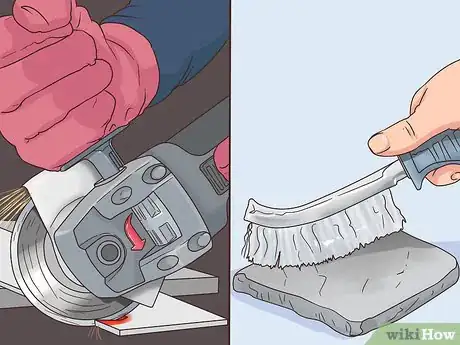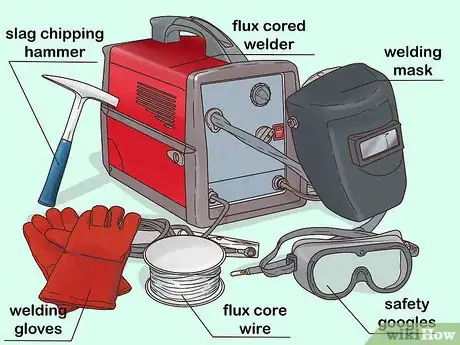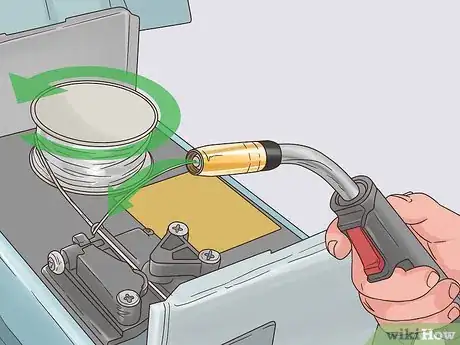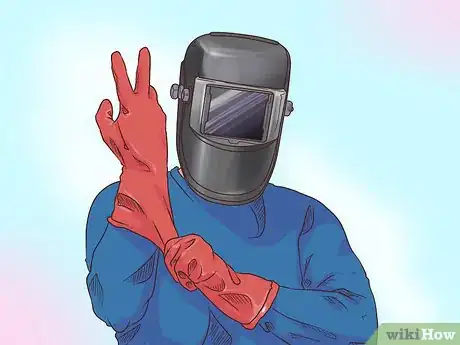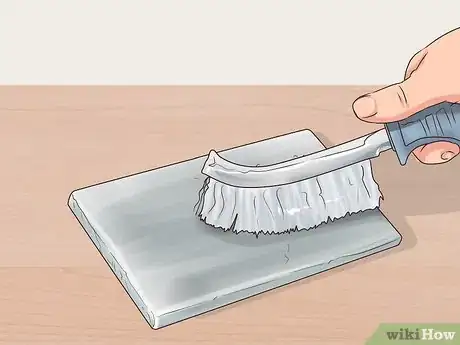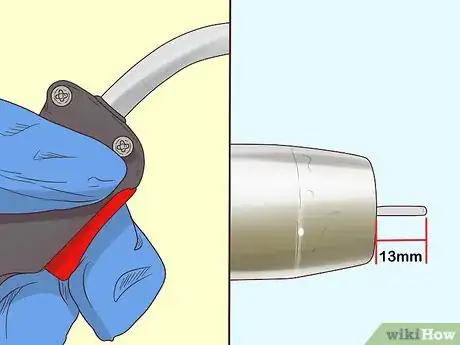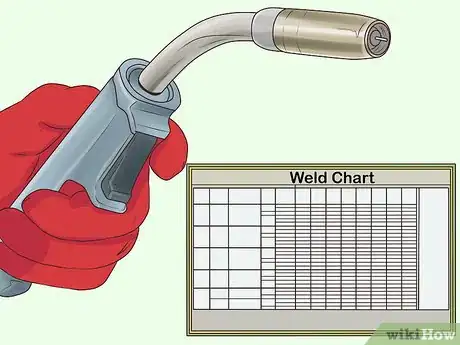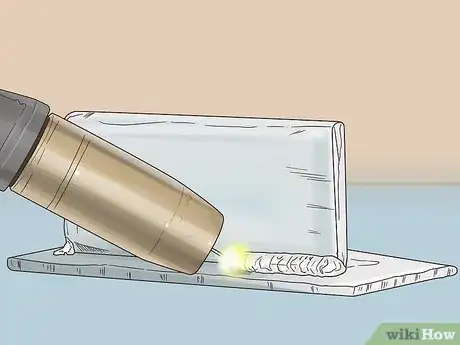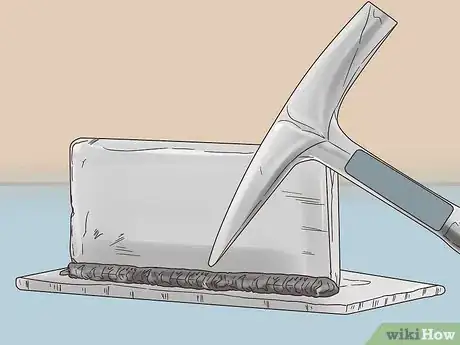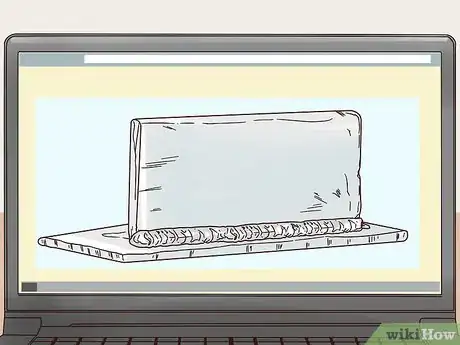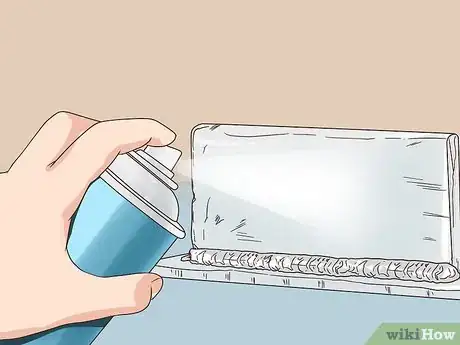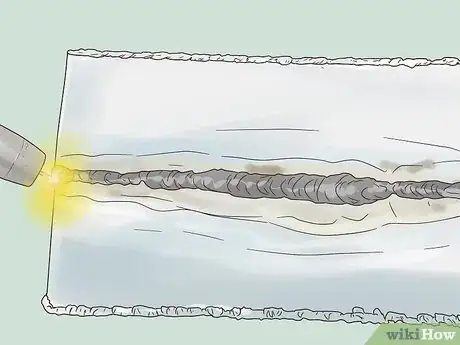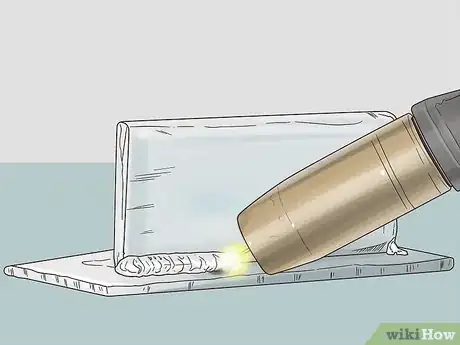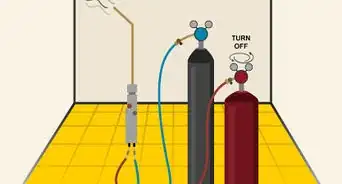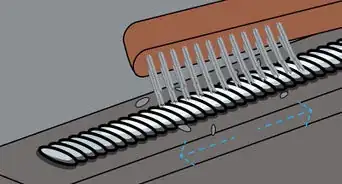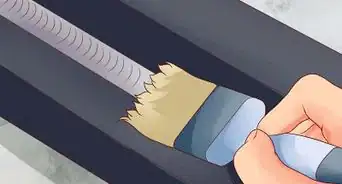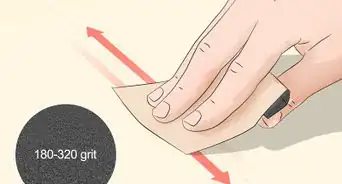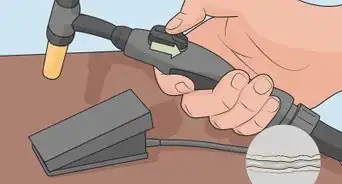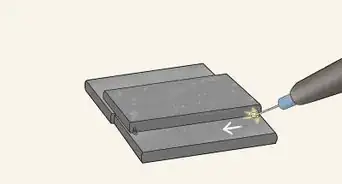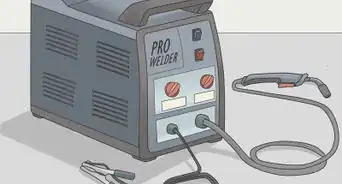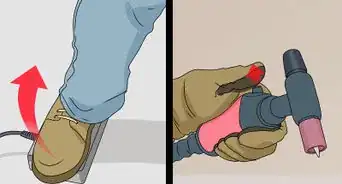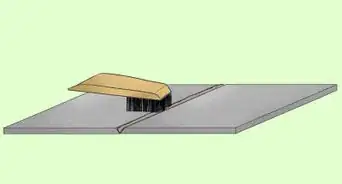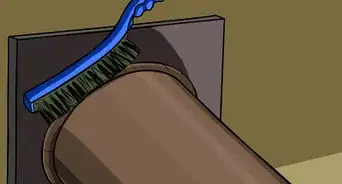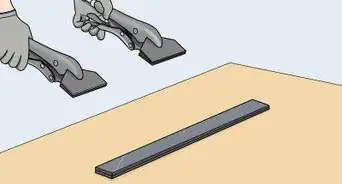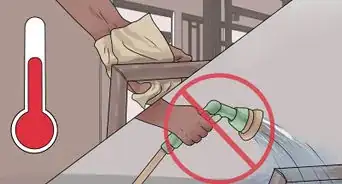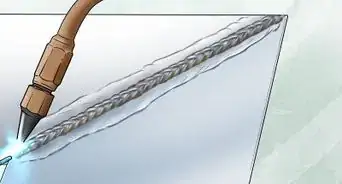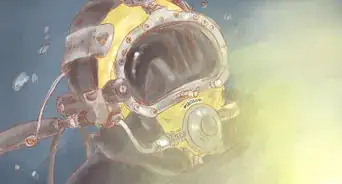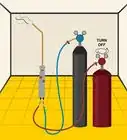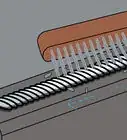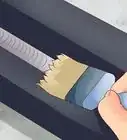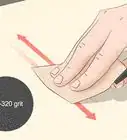X
wikiHow is a “wiki,” similar to Wikipedia, which means that many of our articles are co-written by multiple authors. To create this article, 9 people, some anonymous, worked to edit and improve it over time.
This article has been viewed 27,702 times.
Learn more...
This guide will teach you how to weld steel with a flux core welder. It is essential that you are already familiar with working with metal, such as cutting it, and are aware of the safety measures associated with this type of work.
Steps
Part 1
Part 1 of 4:
Setup
-
1Cut the steel to size. The steel must be free from any rust, paint or other contaminants. Clean it with a carbon steel wire brush.
- You can use a stainless brush to clean with if that is all you have.
-
2Gather all your equipment. This includes a flux cored welder, welding gloves, a welding mask, safety goggles, slag chipping hammer and a spool of flux core wire.Advertisement
-
3Load the wire into the machine by following the proper instructions that came with your machine. Be careful not to get "nesting" in your machine. That is when the wire gets tangled up inside the machine and looks like a bird's nest. It happens if the wire feed is set improperly.
-
4Put on all of your safety gear. This is the mask, safety goggles and gloves. Wear goggles under the mask to protect from hot slag and debris. If the mask is the handheld face shield type, set it aside until you need to weld. Then hold the face shield with one hand over your face and the welding gun in the other. Make sure to wear safety goggles at all times, even during cleanup. Always wear welding gloves, even during setup and cleanup to prevent cuts from metal edges.
-
5Connect the grounding clamp to the workpiece. Clean the area the clamp contacts the workpiece with a wire brush.
-
6Clamp the workpieces together with C-clamps, locking pliers or magnetic squares.
-
7If you are on a MIG welder, change the cables from DCEN to DCEP.
Advertisement
Part 2
Part 2 of 4:
Welding
-
1Squeeze the wire feed trigger until the wire pokes out about 13mm from the tip.
-
2Set the current and wire feed according to a weld chart.
-
3Tap the wire to the steel and quickly pull back, striking an arc. Keep squeezing the trigger as you move the gun along the steel.
-
4Move at the right speed for the steel, this will take some testing on your part.
Advertisement
Part 3
Part 3 of 4:
Finishing The Weld
-
1Unplug the welder, but keep your safety equipment on.
-
2Using a slag chipping hammer, chip all of the slag off of the weld. A spring handled hammer is easy to grip even with gloves on and reduces shock for long periods of work.
-
3Brush the weld with a nylon wire brush to get the little bits of slag out.
-
4Inspect the weld. This guide is quite useful to determine if the weld is good or not: http://manuals.harborfreight.com/manuals/68000-68999/Q68887.pdf.
-
5If you like, you can paint the finished weld once it is cleaned.
Advertisement
Part 4
Part 4 of 4:
Practicing Welding
-
1Before you weld on anything structural, test your welding technique. Butt weld two scrap plates. Clamp them in a bench vise and apply force with a large adjustable wrench. You can also use a pipe wrench. The weld should bend, but not break. If it breaks, then the weld is brittle. Weld another test piece and clamp it in the bench vise. Hit it hard with a hammer. The weld should also bend and not break. If the weld fails either one of these tests, you need more practice.
-
2Keep welding more scrap steel if your welds failed the test described above. Then try again! Remember, practice makes perfect for welding.
Advertisement
Community Q&A
-
QuestionHow do I weld with arc welder between a thin and thick sheet?
 Community AnswerConcentrate on the thicker metal more than the thinner. Use as a low an amperage as you can and also as thin rods as you can. It's tricky, and you will need to practice on scrap metal.
Community AnswerConcentrate on the thicker metal more than the thinner. Use as a low an amperage as you can and also as thin rods as you can. It's tricky, and you will need to practice on scrap metal. -
QuestionIs there a gassless flux core mig wire to weld aluminium?
 Mzm555Top AnswererUnfortunately, gas-less aluminium flux core mig wire simply does not exist, regular solid Aluminium MIG wire does exist, however, this requires the use of shielding gas and the use of a regular MIG welder.
Mzm555Top AnswererUnfortunately, gas-less aluminium flux core mig wire simply does not exist, regular solid Aluminium MIG wire does exist, however, this requires the use of shielding gas and the use of a regular MIG welder.
Advertisement
Warnings
- Always wear safety goggles with side shields under a welding mask or handheld face shield. Chemical splash/impact goggles are best. I use the 3M brand. You can buy those goggles at The Home Depot.⧼thumbs_response⧽
- Always wear safety goggles and welding gloves, even during cleanup and preparation.⧼thumbs_response⧽
- Never weld without a welding mask or handheld face shield⧼thumbs_response⧽
Advertisement
Things You'll Need
- Cleaning brush
- A flux cored welder
- Welding gloves
- A welding mask
- Safety goggles
- Slag chipping hammer
- A spool of flux core wire
About This Article
Advertisement
